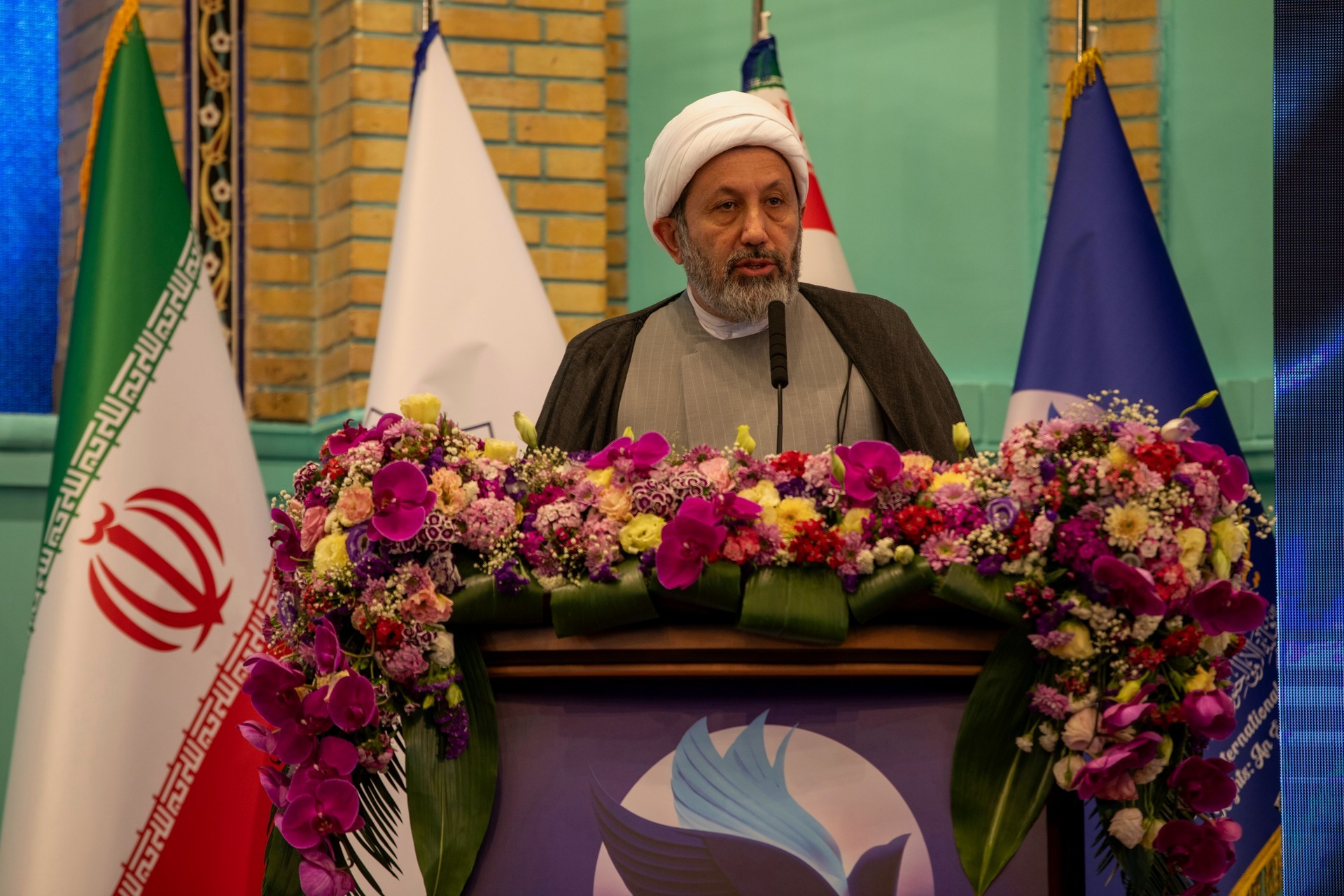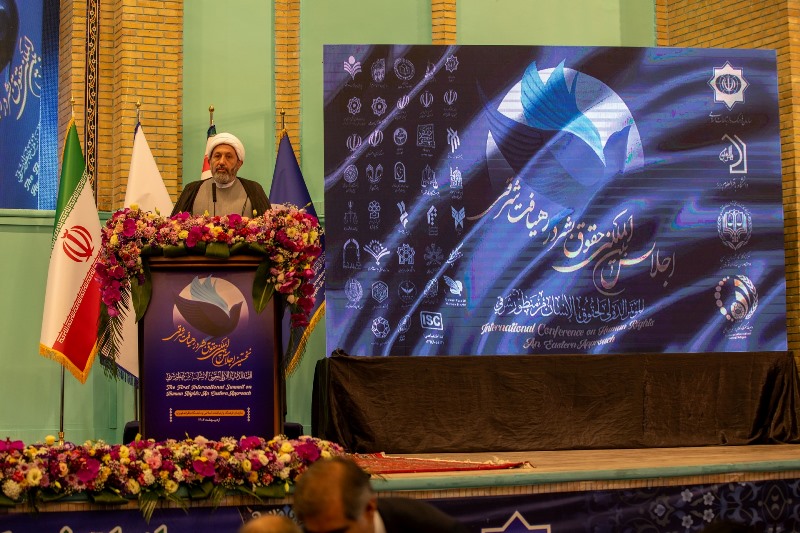Human Rights with Eastern Nature Indispensable Part of Future Civilization: ICRO Chief
The weakness of countries claiming human rights is a product of liberal democracy and the thought systems dependent on it, the head of the Islamic Culture and Relations Organization (ICRO) said.

Hojat-ol-Islam Mohammad Mehdi Imanipour made the remark in an address to the first international conference on “Human Rights in the Eastern Perspective”, which kicked off at ICRO’s headquarters in Tehran on Monday, April 28, 2025 and run until 2nd May.
“The discussion of human rights with an Eastern nature has become an indispensable part of the future human civilization,” he added.
Today, human rights has become one of the most challenging topics in social sciences, defined as a biological life, but the norms that could have brought progress and a better world for humanity have become their own antithesis, he stated.
“Today, the world is witnessing the ineffectiveness and the inability of human rights systems to prevent violence, injustice and hatred due to selfish and individualistic attitudes.
“The double standards of human institutions have added to the inefficiency of human rights mechanisms. In a world where genocide is justified, where innocent children in Gaza are dying of malnutrition, and where human rights institutions are silent, talking about human rights is a bitter irony.”
Hojat-ol-Islam Imanipour added that human rights have long been a universal law in all schools of thought and religions, and its foundations emphasize human values regardless of geographical or cultural boundaries, but today the term has been interpreted in a biased way, and the benefits of human rights have been limited to Westerners.
The historical civilization and the ancient experience of the East, especially the great humanist schools in the field of human rights, have challenge the notion that the subject of human rights was a Western phenomenon and the product of the intellectual founders of the West, who were allowed to interpret human rights, he stated.
“Can the principles and values that govern human rights in the West absolutely be the benchmark for human rights in the world? Is the proposed version of human rights based on the intellectual and empirical foundations of the West, inclusive of human values in the East?”
He said that today, with the emergence of a global human rights system with specific regulatory and enforcement mechanisms, “we are witnessing the interpretation of votes by governments and Western actors. Some governments and schools of thought consider the West to be the main source of the formation and development of the concept of human rights, and allow themselves to determine the meaning of human rights.
“In such circumstances, it is important to examine the potential of the Eastern approach to human rights. Why human rights, instead of being about international peace, is in the service of Western regimes that have blatant discrimination against people of color, black people, women and children?”
The developing multilateralism in the international system has led many countries, especially in the East, to seek to shape a new world order by forming coalitions based on ideas of social, economic and human rights justice, he stated, adding that the weakness of human rights states is a product of liberal democracy and the thought systems that depend on it.
“Given that the world is going through a historic turning point, we can hope for the formation of this human rights system. Thus, the Eastern human rights discourse has become an integral part of the future human civilization. In addition, the discussion of human rights can be found in all the Eastern governments for launching new alliances such as BRICS and the Shanghai Cooperation Organization.
The great religions of the world that originated in the East and that have always emphasized the inherent dignity of the human nature and justice share a common trait: collective responsibility. “This is most evident in Islam, which is based on human dignity.”
The international conference is aimed at reevaluating contemporary human rights discourse by drawing from the philosophical, cultural, and civilizational traditions of the East.
With participation of 40 international scholars representing 22 countries including Kenya which was represented by Professor Francis Owakah from University of Nairobi, the event seeks to foster critical dialogue and scholarly exchange on how non-Western civilizations and religious traditions can contribute to redefining the foundations of human rights. Organizers hope to establish a network of Eastern scholars and practitioners, laying the groundwork for drafting a human rights framework rooted in cultural diversity, spiritual traditions, and collective identity.
Among the key conceptual pillars of the conference is a critique of the dominant Western-centric model of human rights.
The Eastern perspective emphasizes a communitarian view of human dignity, cultural rights, social responsibility, and moral agency.
Topics of discussion will include solidarity rights, the need to de-centralize human rights institutions from the Global North, and redefining the role of civil society actors beyond state-centric models. Organizers stress that a genuine and pluralistic discourse on human rights must recognize the legitimacy of different moral and epistemological systems and resist efforts to universalize Western liberal norms.
The conference is positioned as part of a broader initiative to establish a sustainable intellectual framework that integrates religious, cultural, and philosophical insights from the East into the global human rights conversation.



Write your comment.